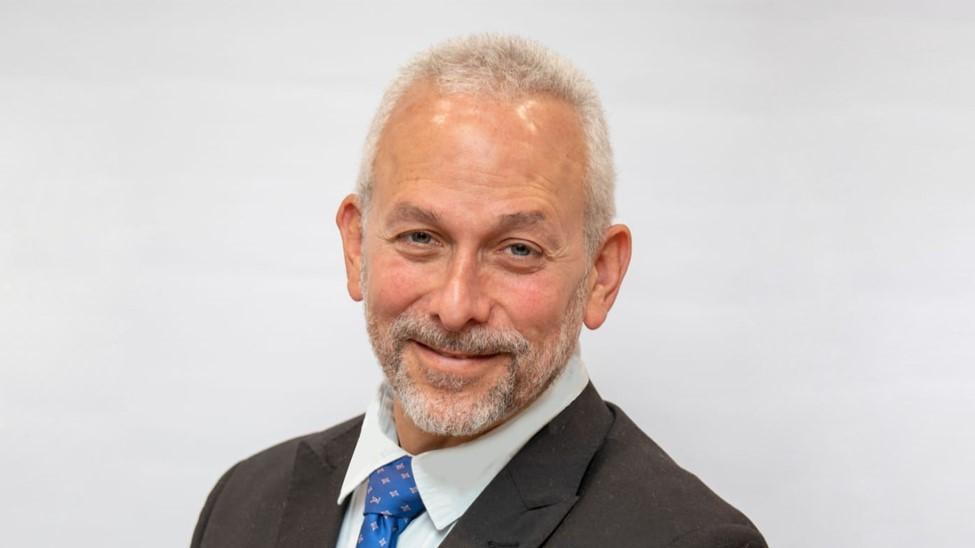
Tax Policy and International Tax Expert Keith Engel to Join Haub Law as a Visiting Professor
The Elisabeth Haub School of Law at Pace University is pleased to announce that Keith Engel, a seasoned expert in tax policy, will join the faculty as a Visiting Professor for the Spring 2024 semester. During his time at Haub Law, Professor Engel will teach Corporations & Partnerships and Tax Policy. Engel is currently Chief Executive Officer for the South African Institute of Taxation and an adjunct tax professor at the University of Witswatersrand.
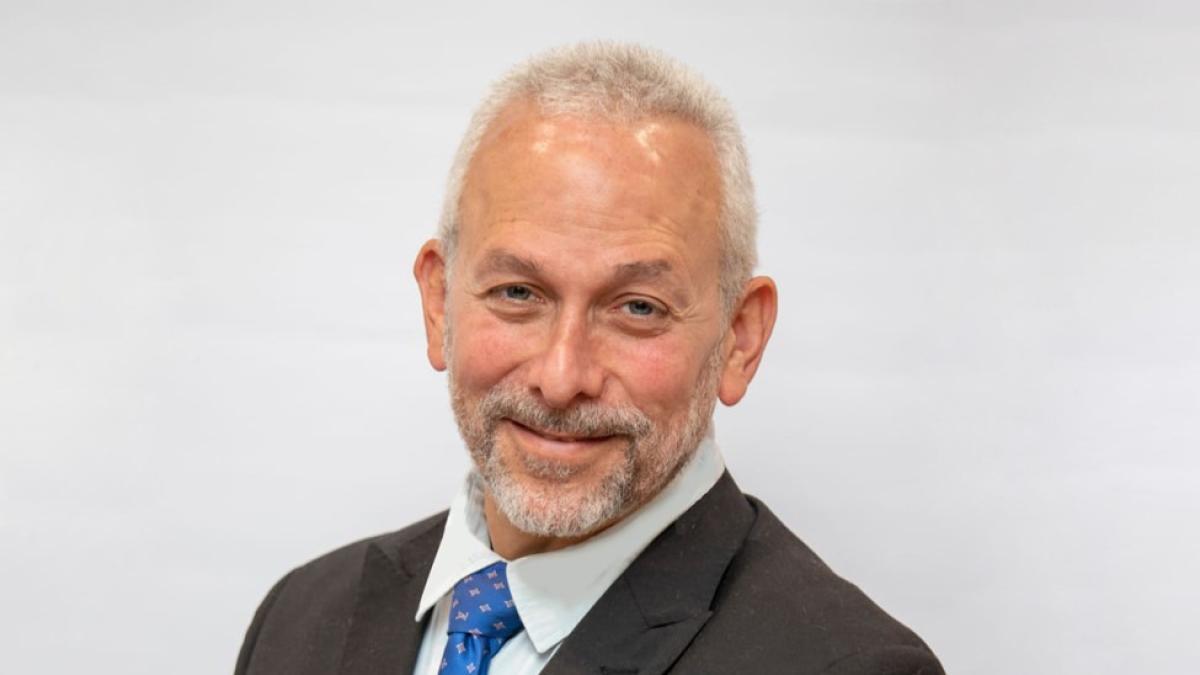

The Elisabeth Haub School of Law at Pace University is pleased to announce that Keith Engel, a seasoned expert in tax policy, will join the faculty as a Visiting Professor for the Spring 2024 semester. During his time at Haub Law, Professor Engel will teach Corporations & Partnerships and Tax Policy. Engel is currently Chief Executive Officer for the South African Institute of Taxation and an adjunct tax professor at the University of Witswatersrand.
Professor Engel’s distinguished career spans the United States and South Africa, with expertise in tax law, policy reform, and business structuring. Since 2015, he has served as the CEO of the South African Institute of Taxation. In that role, he has provided strategic leadership and business development while engaging with parliament and other high-ranking officials on policy. He is a sought-after educator, regularly providing lectures, training, and webinars. He is also an adjunct tax professor at the University of Witswatersrand and provides guest lectures at other universities. Throughout his career, Professor Engel has held numerous other impactful roles in tax policy including as Tax Director for African Tax Policy with EY, Chief Tax Director with the National Treasury of South Africa, and in a variety of roles in the United States.
“We are excited to welcome Keith Engel to Haub Law as a Visiting Professor,” said Horace E. Anderson, Jr., Dean of the Elisabeth Haub School of Law at Pace University. “Professor Engel’s expertise in tax policy – both nationally and internationally – will bring a broadened perspective to our students at Haub Law. With decades of leadership and experience, Professor Engel will contribute significantly to our continuous learning community.”
In addition to his leadership roles, Professor Engel has previously taught at Washington & Lee School of Law, Georgetown University, and other prestigious institutions. At Washington & Lee School of Law, he was honored as Teacher of the Year for three consecutive years. His contributions to the field also include a range of publications on international tax law, policy, and comparative taxation. Further, he is an often sought after lecturer and educator in comparative tax law and policy, international tax law and policy, corporations and partnerships, business law, and more.
Professor Engel earned his bachelor’s degree in foreign service from Georgetown University and his JD and Master of Laws in Taxation both from Georgetown University Law Center.
An Advocate for Marginalized Communities: Q+A with Layne Davis
Layne Davis ’25, a double major in Peace and Justice Studies and Political Science, combines her passions for social justice and human rights with hands-on experiences that include speaking at the UN and co-chairing Social Justice Week. Layne’s transformative journey at Pace is shaping her vision for a more peaceful and equitable world.

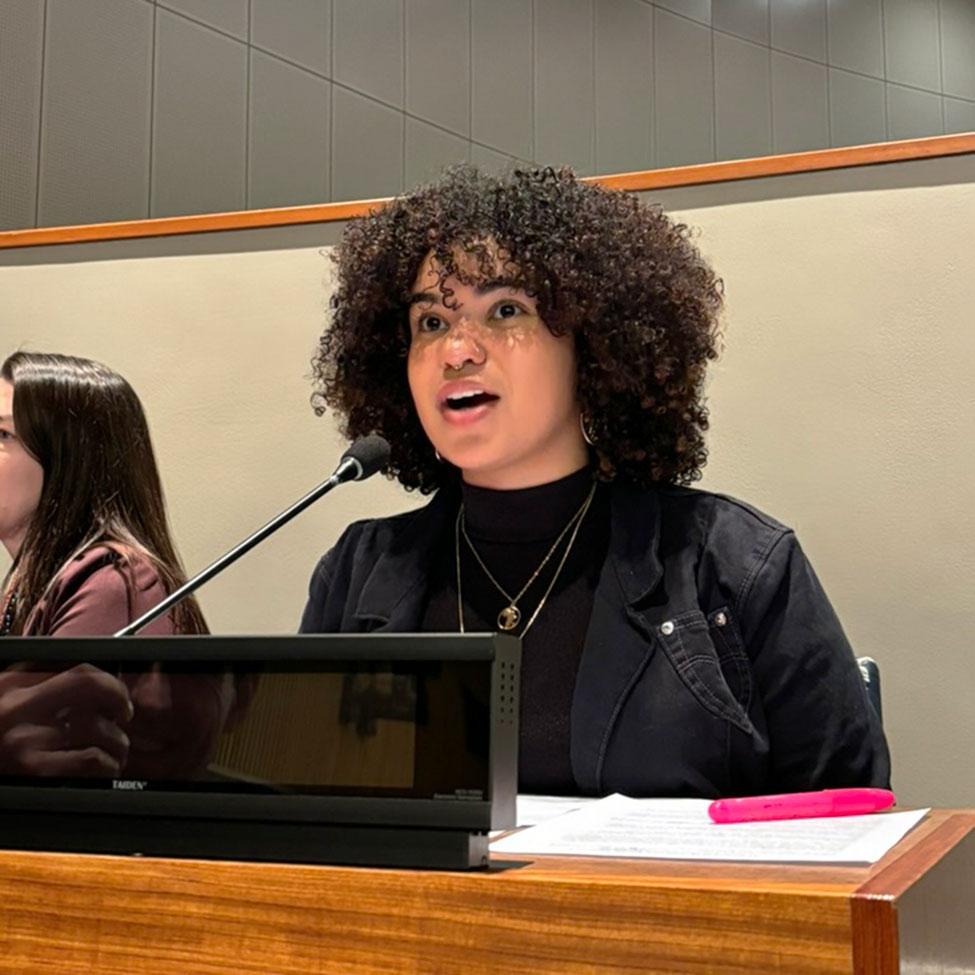
Layne Davis
Class of 2025
BA in Peace and Justice Studies
BA in Political Science
How did you become interested in pursuing both a BA in Peace and Justice Studies and BA in Political Science?
I fell in love with classes that centralized human experiences and emphasized the importance of social justice. I grew up with a deep interest in racial justice and human rights, so when I learned that Peace and Justice Studies was offered as a major, it changed my entire college path. Since taking Introduction to Peace and Justice Studies with Professor Elena Marmo, MSc, I knew I was where I was meant to be. Later, I decided to double major in Political Science since the two pair together so seamlessly. I have found that, together, they have given me a comprehensive foundation for understanding how our society operates, and transformative pathways towards a more peaceful and just world.
Why did you choose to attend Pace?
I appreciated the vast program options that Pace offers. Although I came here with a very specific path, it was reassuring to know I had the flexibility to expand my learning and explore various disciplines. In addition, after growing up in the small city of Nashua, New Hampshire, I craved new experiences and greater diversity. At Pace, I knew I would be inherently immersed in a city landscape, and that is an extremely shaping experience.
In October 2024, you delivered a statement to the UN General Assembly First Committee, which considers issues of disarmament and international security. How was this experience meaningful to you?
My experience delivering a statement at the UN General Assembly First Committee was surreal. I am so thankful to the chair of the Peace and Justice Studies department, Associate Professor Emily Welty, PhD, who gave me this opportunity. Through the statement, I was able to represent youth around the world who advocate for disarmament education. I also want to thank students in the International Disarmament Institute at Pace who drafted this incredible statement.
This opportunity was incredibly meaningful to me. As a young person of color, it is easy to feel powerless when it comes to the decisions that impact our futures. It was so empowering to be in “the room where it happens” and to advocate for myself, my generation, and marginalized communities globally. I am also always inspired and humbled by the work of international civil society organizations who advocate for a more peaceful and sustainable world.
My experience delivering a statement at the UN General Assembly First Committee was surreal. I was able to represent youth around the world who advocate for disarmament education.
What have your experiences been like with the Peace and Justice Studies and Political Science departments? What faculty have been instrumental in your journey?
My experience in the Peace and Justice Studies department has been life-changing. The classes I have taken have opened my worldview exponentially. I also have never experienced such a large community of like-minded people, and I feel that I learn from my peers as much as from my professors. I also never anticipated having instructors who were so invested in my journey and success. All the professors in the Peace and Justice Studies department have been instrumental in my journey, and they are extremely knowledgeable and caring people.
Professor Marmo was the first person to affirm my strengths in this field. She is the person who encouraged me to pursue Peace and Justice Studies as a major and has become a mentor to me over the last few years. Professor Welty has been a consistent role model for me, as I am always inspired by her drive and unwavering commitment to creating positive change. I am so lucky to have received their encouragement and faith in me these last few years.
What other activities and organizations have you been involved with as a student?
I am a second-year resident assistant, an experience that has taught me so much responsibility and life skills. It can be a challenging job, but I feel rewarded by the connections I have been able to make. Additionally, I am a member of Pace’s Black Student Union. It has been comforting to have access to a community of Black people on campus who share similar experiences and cultivate a welcoming space. I’m also a member of Frequency, an a capella singing group on campus. It has been a great outlet for me to sing and perform again, and I have met such amazing people who I am so lucky to make art with.
This year, I also had the privilege of co-chairing the DJ Henry Memorial Committee during Social Justice Week 2024. We held a dinner for DJ Henry and honored his memory by showcasing and sharing some of his favorite things. This was an extremely fulfilling experience, and it was so nice to memorialize him in a way that focused on who he was.
What internships have you had?
I have had two Pace-affiliated internships so far. The first, an opportunity through the Peace and Justice Studies program that I received credit for, was with civil society organizations ACT Alliance and the World Council of Churches, at the Ecumenical Office to the United Nations. At this internship, I provided administrative support and tracked meetings held at the United Nations that were related to peace and security.
The second internship was through Pace’s Wilson Center for Social Entrepreneurship. This was my first paid internship, where I worked with the TAP Network, a civil society network that promotes UN Sustainable Development Goal 16 (peace, justice, and strong institutions). In my role as a program assistant throughout the Summer of 2024, I learned so many valuable skills in advocacy and engagement, as well as had the opportunity to attend a high-level political forum at the United Nations. Throughout this internship, I was supervised by Professor Marmo, which was a full-circle moment for me.
What are your career goals?
I am still figuring out what I would like to do post-graduation, but as of now, I am very interested in diversity, equity, and inclusion (DEI), and the non-profit sector. I hope to pursue a master’s degree in the future when I have a clearer sense of the direction of my career. Right now, I am open to any experiences I can acquire; I want to be a sponge and learn as much as I can about working in the field of peace and justice.
What advice would you like to give to our current students?
If I could give any advice, it would be to not wait to get involved on campus, as I wish that I had opened myself up to what this university had to offer sooner. I know it can be scary to put yourself out there, but you will thank yourself for claiming your education. Next, it’s okay to not have all of the answers. Now is the time to learn about yourself and to try new and different paths. Also, don’t be afraid to schedule a meeting with that professor you really value, or to email your advisor with questions. The staff and faculty here want to help you and see you succeed.
PhD in Nursing Student Rachel Robins, MSN: A Dive Into Maternal Health in Marginalized Communities
Rachel Robins, MSN, CNM, is a dedicated professional excelling in both academia and clinical practice. Currently pursuing her PhD in Nursing at Pace University, Rachel's research focuses on the assessment and interventions for postpartum depression among Black women in New York City. This passion stems from her deep concern over the disparities in maternal care these women often face.
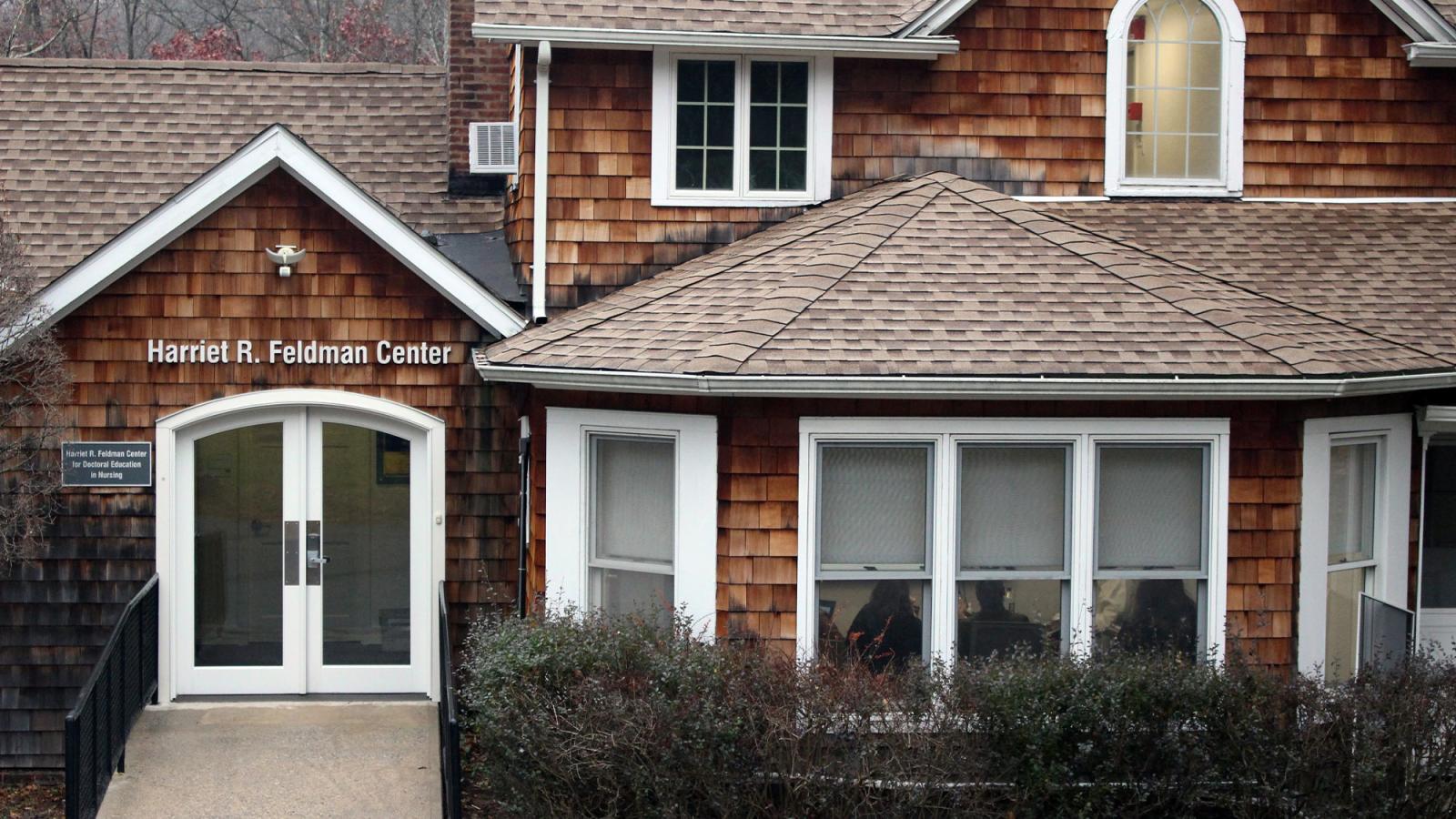
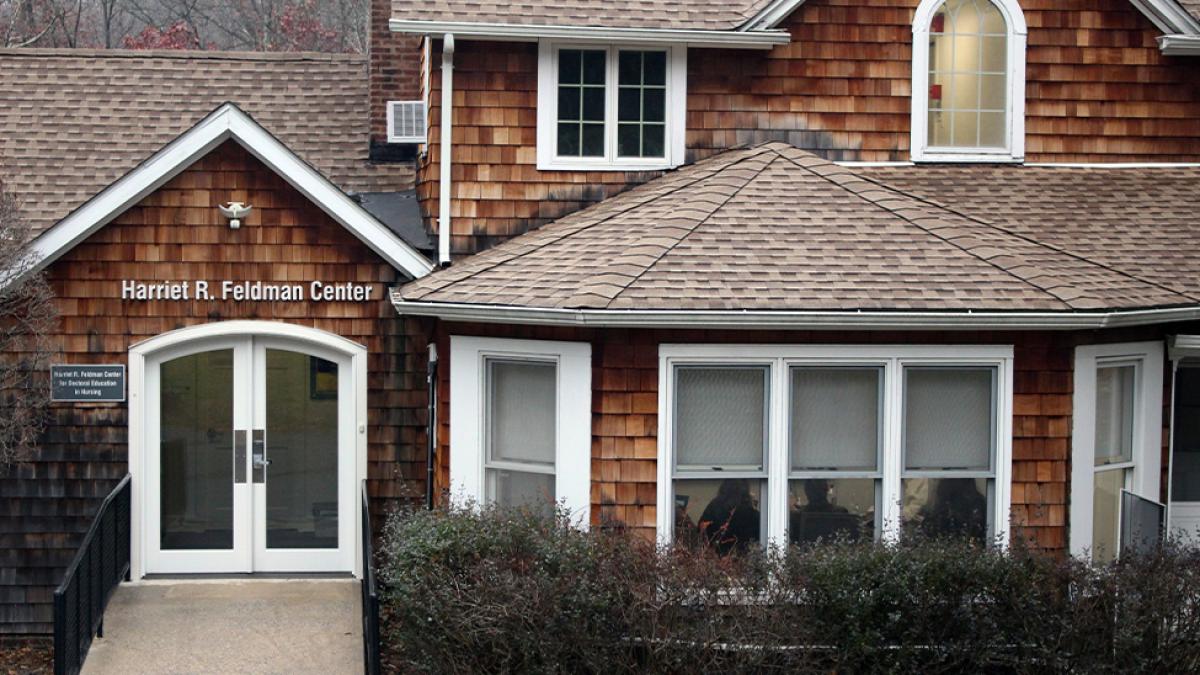
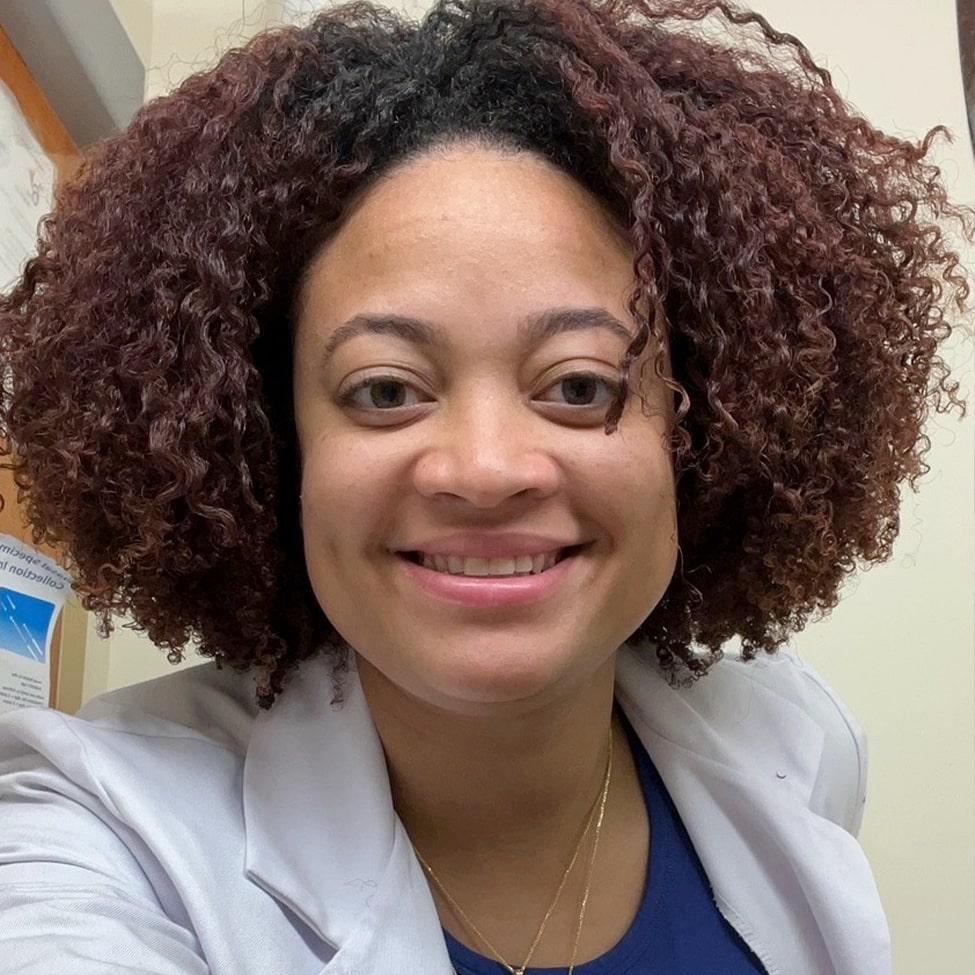
Rachel Robins, MSN, CNM, is a dedicated professional excelling in both academia and clinical practice. Currently pursuing her PhD in Nursing at Pace University, Rachel's research focuses on the assessment and interventions for postpartum depression among Black women in New York City. This passion stems from her deep concern over the disparities in maternal care these women often face.
In addition to her doctoral studies, Rachel is a nurse midwife at NYU Langone Health, where she plays a pivotal role in labor and delivery. Her extensive clinical experience includes practicing at a Brooklyn walk-in GYN clinic, fertility clinic, and she previously held a clinical faculty position at Plaza College.
Most recently, Rachel has been selected as a 2024 Jonas Scholar; a program that aims to improve health care by expanding the pool of PhD and DNP-prepared nurses needed to educate the next generation of nurse leaders. She joins a prestige group of 63 of the nation’s most promising doctoral nursing students selected for their “passion for teaching, academic excellence, and research prowess.”
We connected with Rachel to learn more about her passion behind the topic of Black maternal health, and how the Pace University PhD program has helped her academic and professional journeys.
What inspired your PhD focus, and how does this align with your personal and professional goals?
My focus on maternal health in marginalized communities stems from my experiences as a nurse midwife and labor and delivery nurse. During my time in these roles, I was confronted with the harsh reality of the Black maternal mortality rate in the United States, where Black women are 3-4 times more likely to die due to childbirth compared to their white counterparts. As a Black woman, this struck me deeply, fueling a desire to drive meaningful change for Black women in all aspects of maternal health.
I aim to develop evidence-based strategies for hospitals and healthcare systems to address and reduce these disparities. My goal is to advocate for systemic changes to ensure Black women receive the care and respect they deserve during childbirth. This endeavor is both a professional pursuit and a personal mission to transform Black maternal mortality from a statistic into a significant achievement of change.
Can you describe the specific aspect of maternal health you are researching and why you chose this particular issue?
I chose to focus my research on a less explored but equally vital aspect of maternal health: the postpartum period. Black women face higher rates of preterm birth, preeclampsia, and other adverse outcomes, but what about those who survive these traumatic experiences and enter the postpartum period?
Black women who have endured such traumatic births have a noticeable gap in research and interventions tailored to this phase of maternal health. My research is dedicated to understanding and addressing these unique challenges.
I aim to identify effective interventions that can support Black women in recovering both physically and emotionally after childbirth, ensuring they receive the care they need long after delivery. By focusing on this crucial period, I hope to contribute to a more comprehensive approach to Black maternal mental health that extends beyond survival and into holistic well-being.
What unique challenges have you encountered in your research concerning maternal health in marginalized communities, and how has Pace University helped?
One of the unique challenges I've encountered is the scarcity of focused studies on postpartum depression, specifically among Black women. Although research exists for other racial groups, data specific to Black women is limited, despite being disproportionately affected by adverse outcomes during childbirth, which are significant risk factors for developing postpartum depression. My research is driven by a need to understand why Black women, who are at the forefront of experiencing these adverse outcomes, are not equally represented in the studies.
Pace University’s PhD program has been instrumental in helping me navigate this complex issue. The university has provided me access to many research resources and guided me in refining my ideas, which has helped me develop my approach and ensured that my research is both impactful and relevant to the communities I aim to serve.
— Rachel Robins, MSN
Can you provide an example of how your research findings have influenced or could potentially influence maternal health practices or policies for marginalized populations?
My work has the potential to influence maternal health practices and policies by emphasizing the need for targeted, evidence-based interventions that specifically address the unique challenges faced by Black women during the postpartum period. For example, my findings could be used to advocate for the implementation of screening protocols that are more attuned to the risk factors prevalent in Black women, ensuring early detection of postpartum depression. Additionally, it could have culturally tailored mental health support programs that are accessible and responsive to the needs of Black mothers.
What skills or knowledge have you developed during your career and time in the PhD program, and how do you apply them to your research?
Working in marginalized communities and those with abundant resources has given me insights into the stark disparities in healthcare access and outcomes. The contrast between these environments is profound, not just in terms of access to treatment but also in the availability of essential resources. This experience has shaped my research by showing areas where change is most needed.
I've developed an understanding of the social determinants of health and how they disproportionately affect marginalized populations. I've also honed my ability to identify gaps in care and resource allocation, guiding my research focus.
How does the PhD program help you identify perspectives and needs of marginalized communities in your research and clinical practice?
The PhD program has been invaluable in helping me integrate the perspectives and needs of marginalized communities into both my research and clinical practice. The guidance of my mentors and professors has been particularly crucial in shaping my understanding of the research approach required to achieve my goals.
Through their mentorship, I've learned how to identify the unique challenges faced by marginalized communities and how to incorporate these insights into my research. This has enabled me to develop more relevant and effective interventions addressing these populations' needs. Their support has also strengthened my clinical practice by encouraging a more holistic and inclusive approach to patient care, ensuring that the voices and experiences of marginalized communities are always at the forefront of my work.
How has the Pace University PhD program impacted your thesis?
The collaborative environment at Pace has been instrumental in my work and research. Working closely with my cohort and having access to other cohorts has provided me with diverse perspectives that have significantly shaped my research. The ability to brainstorm ideas with my classmates has been great because it has allowed me to see what approaches work and what don’t, helping me refine my research. This collective exchange of ideas and experiences has improved the quality of my study and fostered a supportive community that has made me grow as a PhD student.
What drew you to the CHP PhD in Nursing program?
I knew I wanted to pursue research and that the PhD in Nursing was right for me, but choosing the right school was more challenging. My time working at NYU played a pivotal role in my choice. I connected with someone currently in a different cohort at Pace University, and she spoke highly of the support, mentorship, and sense of community she experienced there.
While researching other schools, I found that the qualities she described were less evident elsewhere. It became clear that the Pace University PhD program was genuinely invested in helping students achieve their goals. After joining the program, it exceeded my expectations. The faculty's support and dedication have confirmed that I made the right choice and enriched my educational journey in ways I hadn’t anticipated.
How has the PhD in Nursing program supported you in your educational journey?
The PhD in Nursing program at Pace has been incredibly supportive in my educational journey, offering mentorship, opportunities, and a strong sense of community. The professors here genuinely want you to succeed, which shows in everything they do. They are always available to answer questions, help you think critically, and guide you in honing your research skills. Their unwavering support makes the challenging journey of earning a PhD feel attainable and deeply rewarding.
The professors' passion for research truly sets the program apart, which shines through in every class. Their contagious enthusiasm has made my experience in the program inspiring. Being part of such a dedicated and supportive community has made all the difference in my progress and confidence as a researcher.
— Rachel Robins, MSN
What are your future career plans after completing your PhD, and how do you plan to continue addressing maternal health disparities in marginalized communities?
My primary goal is to establish a dedicated team in NYC focused on research in the Black maternal health community. I aim to develop standardized interventions and improvements across hospitals that ensure equitable care for Black women. I plan to work on influencing policy changes that promote implementing these standardized practices across healthcare systems. By collaborating with hospitals, community organizations, and policymakers, I want to ensure that our research translates into tangible improvements in maternal health outcomes.
I also aspire to contribute to academic literature by publishing my findings and sharing successful intervention models that can be adopted nationwide. My long-term vision is to see a significant reduction in adverse outcomes for Black women and to establish a legacy of research-driven change that empowers marginalized communities. Teaching and mentoring the next generation of healthcare professionals to continue this critical work is also a part of my plans, as education and advocacy are vital to sustaining and expanding these efforts.
Learn more about the PhD in Nursing program at Pace University.
In Penny Verdict, a Flashpoint in the Debate Over Crime and Mental Illness
Elisabeth Haub School of Law Professor Bennett Gershman provided expert analysis of the Daniel Penny trial and verdict, sharing his insights with The New York Times.
Hochul's $3B 'Inflation Refund' Check Plan Called Cynical Ploy By Some, Lauded By Others
Economics Professor Mark Weinstock shared his analysis with The Journal News in the Hudson Valley, discussing the potential impacts of Governor Kathy Hochul’s proposed 'Inflation Refunds.

Daniel Penny Acquitted In NYC Subway Chokehold Death
Elisabeth Haub School of Law Professor Bennett Gershman has been engaging with media outlets, including WPIX, to discuss the Daniel Penny trial and verdict. He accurately predicted the trial's outcome and provided expert insights.
Senator’s Visit Underscores Pace Cybersecurity Program
The Westchester & Fairfield County Business Journals highlight Senator Kirsten Gillibrand’s visit to Pace’s Cyber-Range in Pleasantville.

Daniel Penny Trial Spotlighted Issues Of Homelessness, Mental Illness: Experts
Haub Law Professor Bennett Gershman has been busy talking with media about the Daniel Penny trial and verdict. He accurately predicted the outcome and shared his expertise and insights.